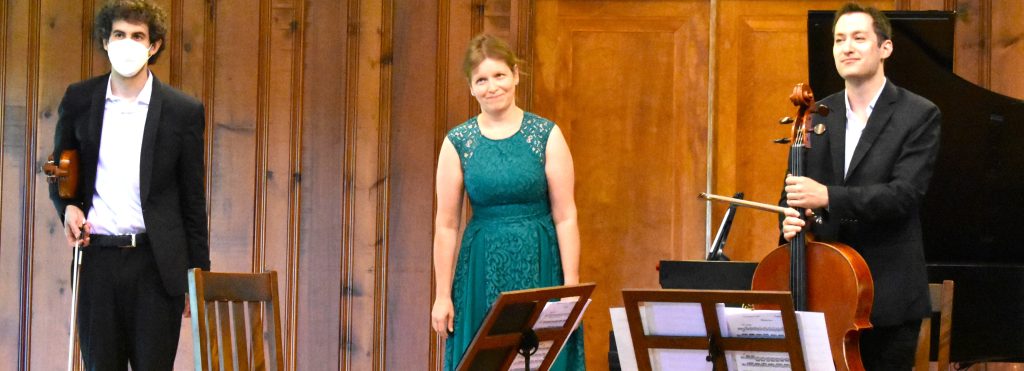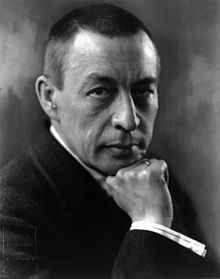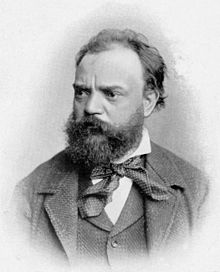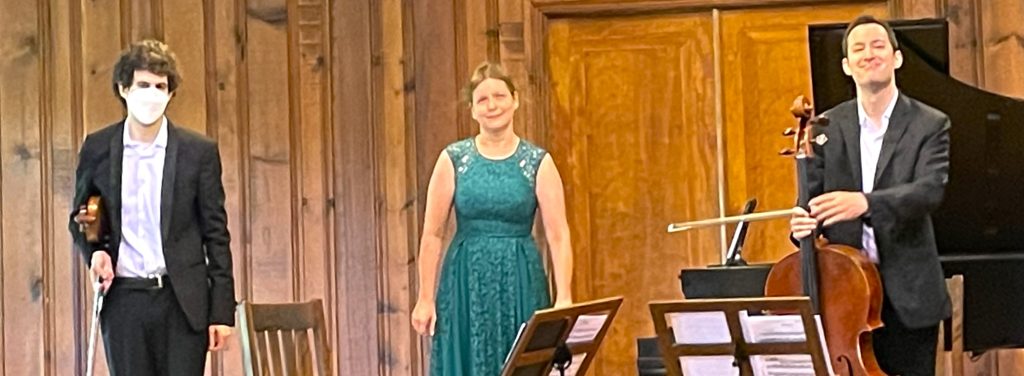
by Kevin T McEneaney
Under gray skies that relented to sunshine streaming over Gordon Hall, the Lysander Trio (formed by students at the Juilliard School and named after the character of Lysander in William Shakespeare’s A Midsummer Night’s Dream) opened with Trio Elegiaque in G Minor, No. 2 (1892) by Sergei Rachmaninoff. This elegy was composed in commemoration of the fabulous Pyotr Tchaikovsky (whose surname means tea merchant).
In his early years, Rachmaninoff was primarily a pianist; in this revised second version he improved the role of the cello and violin, yet this work rests on the shoulders of the piano, strikingly played by Liza Stepanova with deep emotion. As a lament, an opening somber melody dominates the three-part work. The second movement consists of eight variations upon the main theme of Rachmaninoff’s symphonic poem “The Rock” where violin and cello have a more integrated role. The piano once more dominates in the third-part movement where the piano is memorably impressive with ardent lament under the fiery fingers of Stepanova who conveyed the emotion of losing Russia’s greatest nineteenth-century composer.

They then performed two Nguni dances composed by Bongani Ndoda-Breen, the composer of Winne, the Opera, which limns the life of Mrs. Winnie Mandela. This short piece of four minutes duration featured complicated African rhythms from Bantu pastoral culture. As in most folk cultures, there is a cyclical repetition of musical motifs—here the piano alternated in G between both hands. The music was charming and exotic.
Nostos (2022) was a work commissioned by the Lysander Quartet for Udi Perlman, a fellow Juilliard student composer. The Greek word nostos, as in Homer’s Odyssey, means a journey home. Perlman grew up in Israel and traveled about the globe, encountering various difficulties. The work describes a series of difficulties with violin and cello predominating. Just as I was about to become alienated, the piano burst into a marvelous melody brimming with nostalgia for his childhood. That melody has been ringing in my ears over the past twenty-four hours; it provided a delightful conclusion, and I wished to hear the work once more! At the moment, Perlman is pursuing a doctorate in musical composition at Yale.

After Intermission, they performed Piano Trio in F Minor, Op. 65 (1883) by Antonín Dvořák. Composed at the height of Dvořák’s friendship with the violinist Joachim and Brahms, this composition is often considered to be Dvořák’s most “Brahmsian” work, being heavily influenced by Brahms’ Piano Quintet, Op. 34, yet introducing Czech musical motifs. Although a trio, its soundscape appears to transcend the genre. More somber than Brahms’s piano quintet, it alludes to the death of his mother Anna Dvořáková on 15 December 1882. This work remains a staunch pillar of the piano repertoire.

The slow first movement in sonata form opens with shocking pathos where Itamar Zorman’s violin excelled in high-pitched melancholy. The second movement offers an unconventional Scherzo where the piano appears to shake and quiver with uncertainty of direction. The slow third movement lets the cello dominate with resignation as Michael Katz on the cello provided sober emotion. The fourth movement delivered moderate ebullient reversal as all three instruments achieved sincere intensity with the ambiance that life must go on in the face of our mortality.
The delighted audience demanded three bows.
For encore, they played an excerpt from a work by Amanda Röntgen-Maier (20 February 1853 – 15 July 1894), a Swedish violinist and composer. She was the first female graduate in music from the Royal College of Music in Stockholm. I found the work interesting with lively harmonics and nimble colors, yet I had no context to offer an interpretation of what they played. I would have liked to hear more….
The Lysander Trio appears to have an avid interest in music around this globe.
